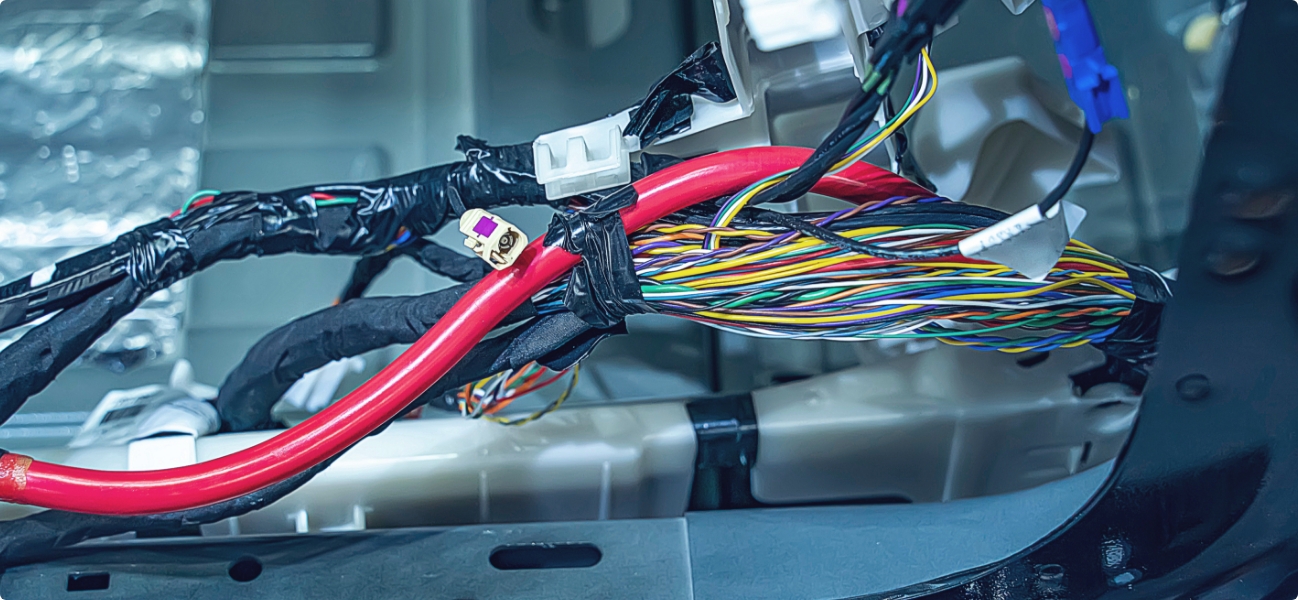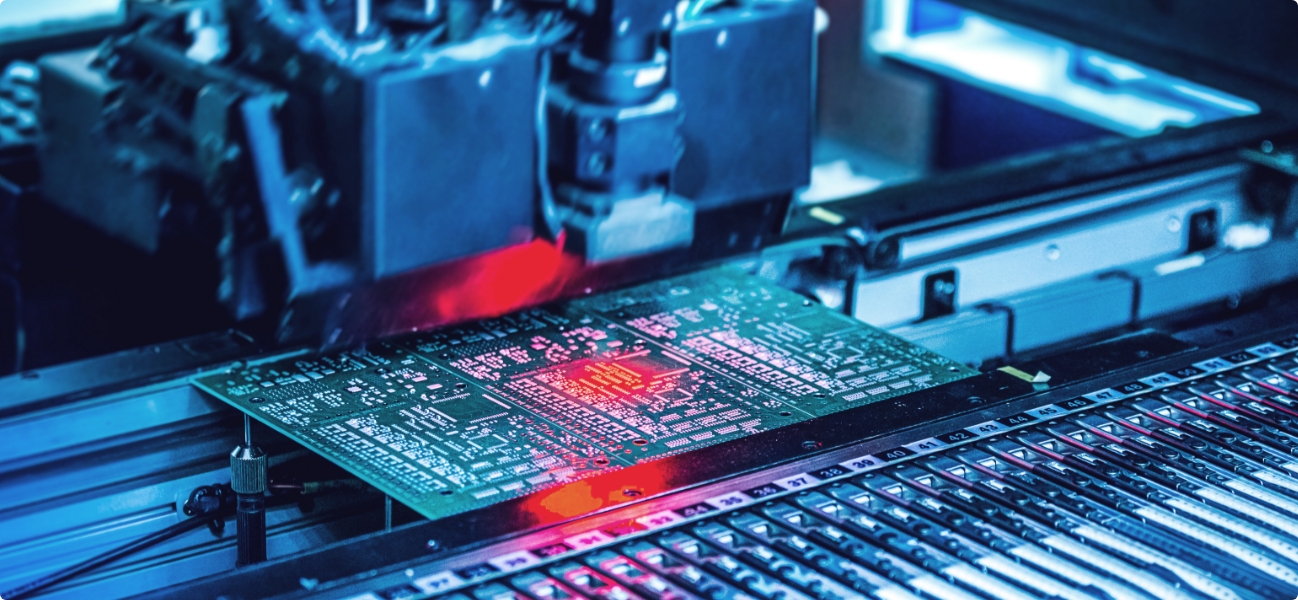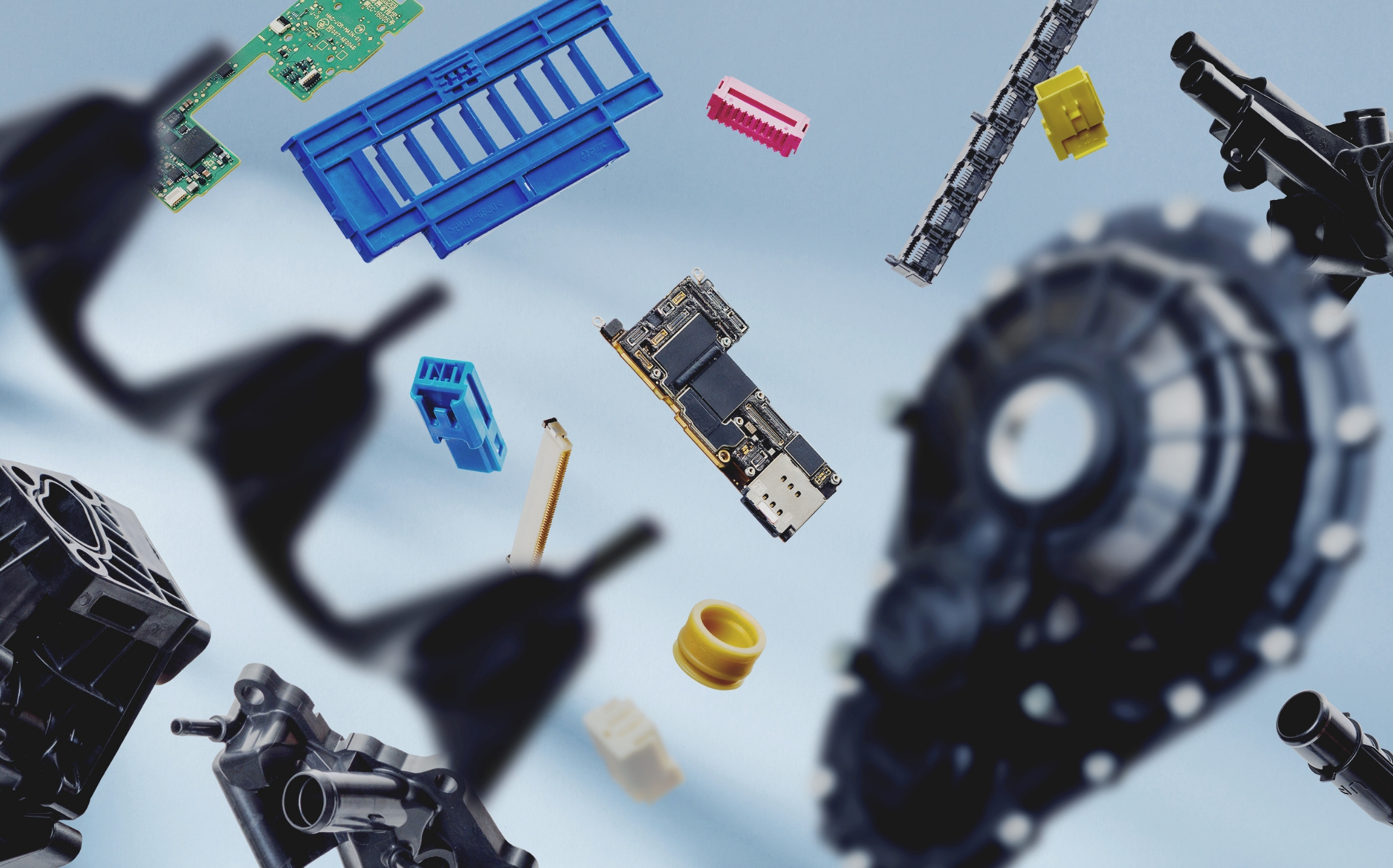PA6T developed
by Mitsui Chemicals
Super engineering plastic with high heat resistance and low water absorption developed in the 1980s

In the 1980s, we developed ARLEN™ modified polyamide PA6T for the first time in the world. This product has been put to practical use in the field of electric components, such as mechanism elements and wire harnesses for automobiles, where conventional aliphatic polyamide materials, such as PA6 and PA66, were low in heat resistance. It overcame the weakness of conventional materials with water absorption problem and supports the manufacture of components that can withstand even under a harsh environment. In addition, in the electric component fields, its high heat resistance, rigidity, and fluidity were evaluated, leading to an increase in the demand mainly for connectors.
Flame-retardant grade compatible with SMT
Underlying support for narrowing pitch of ICT components, after the 1990s

In the 1990s, ICT devices became downsized and sophisticated, and the surface mounting technology evolved as a result of the narrowing pitch of connectors. ARLEN™ in the flame-retardant grade, which is compatible with SMT (reflow soldering) while maintaining high rigidity and fluidability, was developed to support the manufacture of connectors with precision and less deviation from the aspect of raw material.
Compatibility with lead-freedom
In the early 2000s, the surface mounting materials shifted to lead-free ones

With an increase in environmental awareness, the material used for jointing electronic components shifted to lead-free solder. Associated with this, the need increased for higher heat resistance that can withstand 250ºC to 260℃, which is higher than the temperature of conventional reflow process. Mitsui Chemicals developed a product grade compatible with lead-free soldering by controlling the design and dispersion state of flame-retardant components, resulting in the reduction of blister generation as much as possible.
Compatibility with halogen-freedom
Around 2008, the grades that meets the trend of halogen-freedom were launched
While a movement to eliminate halogen compounds considering the impact on the natural environment was under way, halogen free standards were standardized for some ICT components. For ARLEN™, a zero-halogen grade was developed quickly to meet this trend. High quality products with environment friendliness, high strength, and superior workability and moldability have been continuously supplied in a stable manner.

